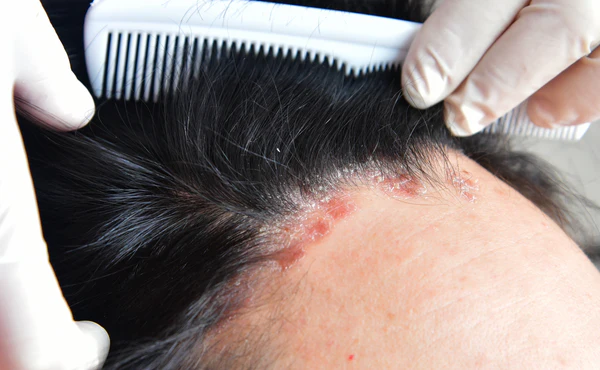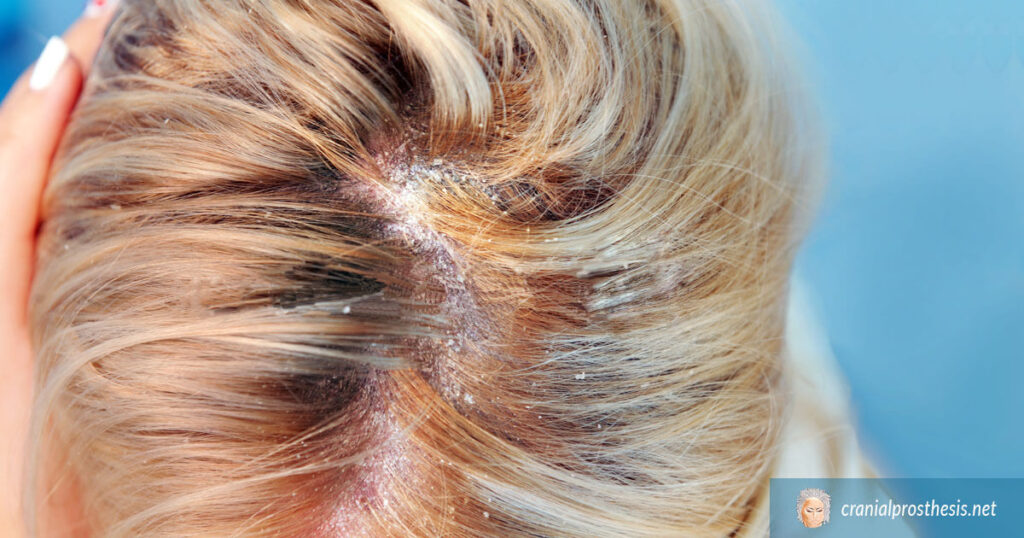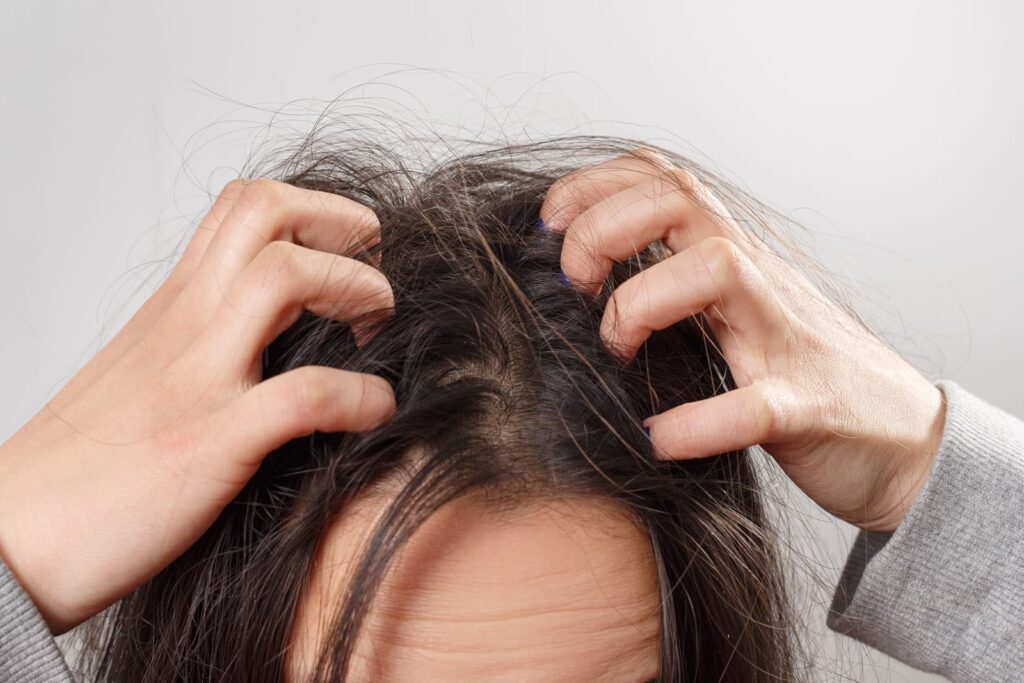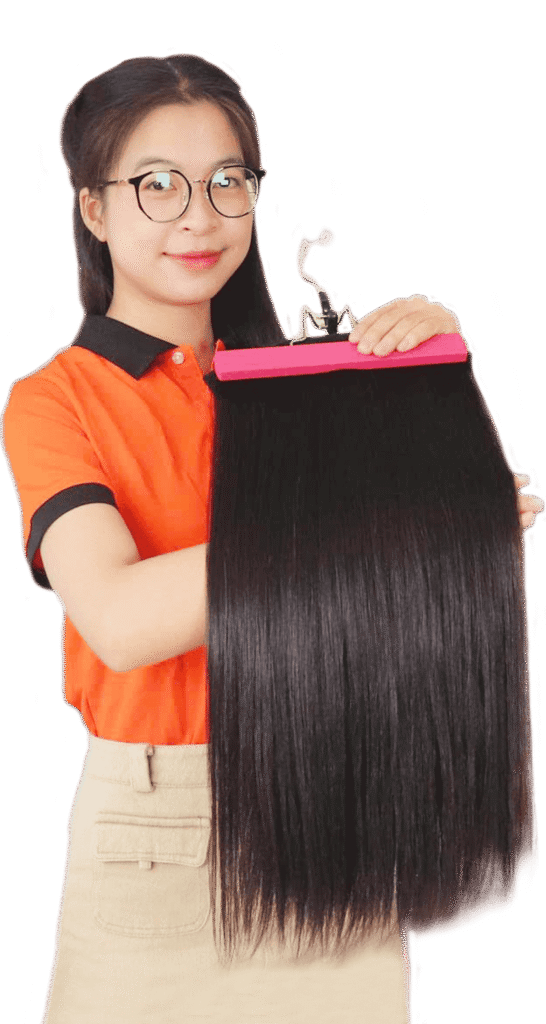Dealing with a sensitive scalp can be a frustrating and uncomfortable experience. Whether it’s itching, redness, dryness, or flakiness, these symptoms can make everyday life challenging. But you’re not alone – many people experience scalp sensitivity at some point in their lives. Understanding the root causes and finding effective solutions can significantly improve your scalp health and overall comfort. In this blog, we’ll explore the common triggers of a sensitive scalp and provide practical tips and remedies to soothe and manage this condition effectively. Read on to discover how you can achieve a healthier, happier scalp.
I. What is A Sensitive Scalp?
A sensitive scalp is a condition characterized by discomfort and irritation of the scalp. This can manifest in various ways, including itching, burning, redness, tingling, and dryness. People with sensitive scalps often experience these symptoms in response to specific triggers, which can vary from person to person. Here are some common symptoms that often happen to people who have sensitive scalps:

- Itching: Persistent or occasional itching can be a primary sign of sensitivity.
- Burning Sensation: A feeling of heat or burning on the scalp, often accompanied by redness.
- Redness and Inflammation: Visible redness and swelling, indicating irritation.
- Dryness and Flakiness: The scalp may become dry and flaky, sometimes leading to dandruff-like symptoms.
- Tenderness: The scalp may feel sore or tender to the touch.
- Tingling: A tingling sensation can be a subtle yet persistent sign of sensitivity.
II. What Are The Potential Causes of A Sensitive Scalp?
Experiencing discomfort, itchiness, or pain on your scalp can be frustrating and worrying. A sensitive scalp is a common issue that can stem from a variety of factors, ranging from external irritants to underlying health conditions.

- Harsh Hair Products: Shampoos, conditioners, and styling products containing strong chemicals can strip the scalp of its natural oils, leading to irritation.
- Allergic Reactions: Allergens in hair care products, such as fragrances or preservatives, can cause allergic reactions.
- Environmental Factors: Exposure to sun, wind, or cold weather can dry out the scalp, making it more sensitive.
- Stress: Emotional stress can exacerbate scalp sensitivity and other skin conditions.
- Scalp Conditions: If you have pre-existing scalp conditions such as dandruff, seborrheic dermatitis, psoriasis, folliculitis, or eczema, chances are you’re already experiencing sensitivity.
- Diet and Lifestyle: Poor diet, lack of hydration, and unhealthy lifestyle choices can negatively affect scalp health.
→ Whether you’re dealing with occasional irritation or chronic sensitivity, identifying the root cause is the first step towards achieving a healthier, more comfortable scalp. Understanding the potential causes of scalp sensitivity is crucial for finding the right treatment and relief.
III. Why It’s Important to Address Scalp Sensitivity?

Ignoring a sensitive scalp can lead to more severe issues, such as infections or chronic dermatological conditions. Additionally, persistent discomfort can significantly impact your quality of life. By understanding the causes and symptoms, you can take proactive steps to manage and alleviate sensitivity, promoting a healthier scalp and overall well-being. In the following sections, we will delve into effective strategies and treatments to help you manage and soothe a sensitive scalp.
IV. Practical Tips and Remedies To Soothe and Manage Sensitive Scalp Effectively
Dealing with a sensitive scalp requires a combination of gentle care, appropriate products, and lifestyle adjustments. Here are some effective strategies to help soothe and manage a sensitive scalp:
How To Treat A Sensitive Scalp #1: Wash Your Hair Properly
First of all, choose gentle hair care products. Opt for sulfate-free, fragrance-free, and hypoallergenic shampoos and conditioners, and look for products specifically designed for sensitive scalps. You also can find products that contain soothing ingredients like aloe vera, chamomile, and tea tree oil, cuz these ingredients can help calm irritation to wash your hair.

Remember to avoid washing your hair too frequently, cuz it can strip the scalp of its natural oils (ideal frequency: 2-3 times/week), and use lukewarm water instead of hot water to prevent further drying and irritation. During washing, do not forget to gently massage your scalp to remove any buildup of oils and products because maintaining good scalp hygiene is also essential.
#2: Avoid Harsh Treatments
Harsh treatments such as hair dyes, perms, and relaxers should be minimized, as well as the use of heat-styling tools like blow dryers, curling irons, and straighteners. If you must use these tools, keep them in a low heat setting and always apply a heat protectant spray.
How To Treat A Sensitive Scalp #3: Manage Stress & Stay Hydrated

Managing stress is also crucial, as it can exacerbate scalp sensitivity. Besides, staying hydrated and eating a balanced diet is important too. Drink plenty of water to keep your scalp hydrated from the inside out, and eat a diet rich in vitamins and minerals, particularly those that promote skin health, such as omega-3 fatty acids, vitamin E, and biotin.
#4: Use Home Remedies
- Aloe Vera Gel: Apply pure aloe vera gel to the scalp to soothe irritation and provide moisture.
- Coconut Oil: Massage coconut oil into the scalp to help reduce dryness and inflammation. Leave it on for at least 30 minutes before washing it out.
- Apple Cider Vinegar: Dilute apple cider vinegar with water (1:3 ratio) and use it as a rinse after shampooing to restore the scalp’s natural pH balance.
→ If your sensitive scalp persists or worsens, consult a dermatologist. They can provide tailored advice and may prescribe treatments such as medicated shampoos or topical steroids.
V. Conclusion
A sensitive scalp can be managed effectively with the right approach. By choosing gentle products, practicing good scalp hygiene, managing stress, and incorporating soothing remedies, you can significantly improve your scalp health. Remember, consistency is key, and if you continue to experience issues, seeking professional advice is always a wise step.


 BEST SELLING PRODUCTS
BEST SELLING PRODUCTS Wig Hair
Wig Hair WHOLESALE
WHOLESALE Contact us
Contact us Sale Events
Sale Events
